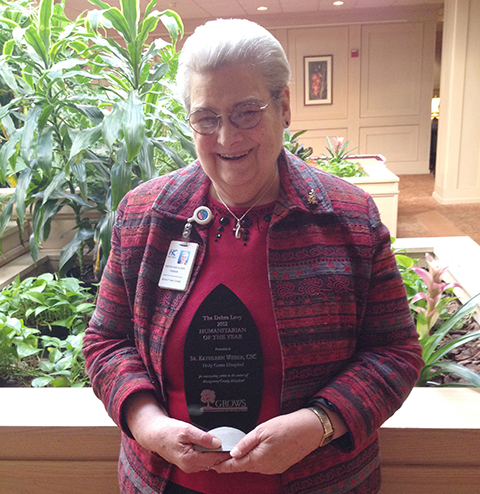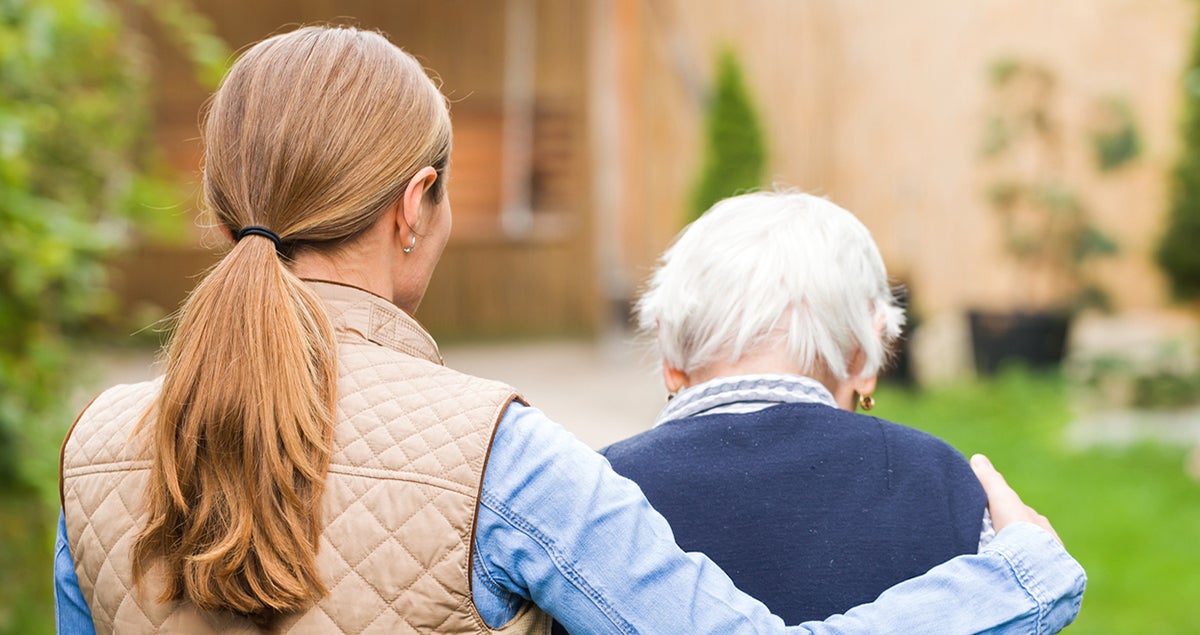How do you know when a person needs a caregiver?
 Sister Kathleen Weber, Coordinator, Holy Cross Resource Center
Sister Kathleen Weber, Coordinator, Holy Cross Resource Center
A caregiver is needed if bills are not getting paid, food is not available or fresh, the kitchen is not safe, medications are not being taken or managed properly, or safety hazards exist in the home. Other signs are issues of personal cleanliness like not showering or putting on clean clothes, or hoarding things like stacks of newspapers.
What are some common things that caregivers do for the person in their care
Family caregivers monitor the needs of the person in their care. They provide in-home care or hire professionals to provide this care. In cases of long-distance caregiving, they may need to look into care managers. They investigate residential facilities in case the need should arise. They check on medical care, pay or supervise paying of bills, and assure the safety of the residence. The should be aware of financial assets and know where they are, and they should try to get advance directives clear and in writing.
What are some of the top challenges that caregivers face?
The challenges are endless. Elders want to be independent and will try to conceal problems if they can or they may be resistant to receiving help from a caregiver. There are financial needs. And personal issues within the family can cause friction. Caregivers can face burnout unless they really take care of themselves and learn how to establish boundaries. They need time for themselves. You can’t give to somebody what you don’t have yourself, so you’ve got to keep that nourishment and enrichment coming in to be able to handle a situation. They become so bogged down with caregiving they forget that. Guilt is also a big thing in caregiving. Even though they do everything humanly possible for their family member, they still feel they’re not doing enough or that this is happening because they’re not doing enough.
How do you help them cope?
At the Holy Cross Resource Center, we have a motto in our support groups and a sign on the wall that says “Let whatever you do today be enough.” And I try and drum that into their heads. No, they’re not perfect. They cannot do everything. But whatever they do is all they can do, and as long as they do it well nothing more is expected.
What does a support system look like?
Caregiving is not a one-person job. Your support system is very, very important, and many caregivers consider it life-saving. You need lots of help and support from your family, your religious leaders, understanding friends, and professional help like therapists and care managers.
What are the caregiver support groups like?
At the Holy Cross Resource Center, I do seven support groups a week. There are usually 6 to 10 people in the support groups. Sometimes it’s larger, sometimes it’s smaller. We can accommodate 11 people comfortably without bringing in extra chairs. Some people have been in these groups for years. Other people are new. Some people, particularly spouses, like to stay with the group for a while after their person dies because that has become their support system and they’ve bonded so strongly that they continue to come for a while.
What other resources are available to support caregivers?
In addition to our support groups, there are lots of books and DVDs, which you can find in our Caregiver Resource Center. There are also things you can find on the internet, such as webinars. Professional organizations like AARP, American Cancer Society and the Parkinson’s Foundation offer programs, classes and other resources to help caregivers grow in knowledge and confidence.
Holy Cross Health presents the information in this blog as a resource for our community. It is not intended to replace professional medical advice or to endorse any particular entity or service. Personal health problems should be brought to the attention of the appropriate health professionals.

